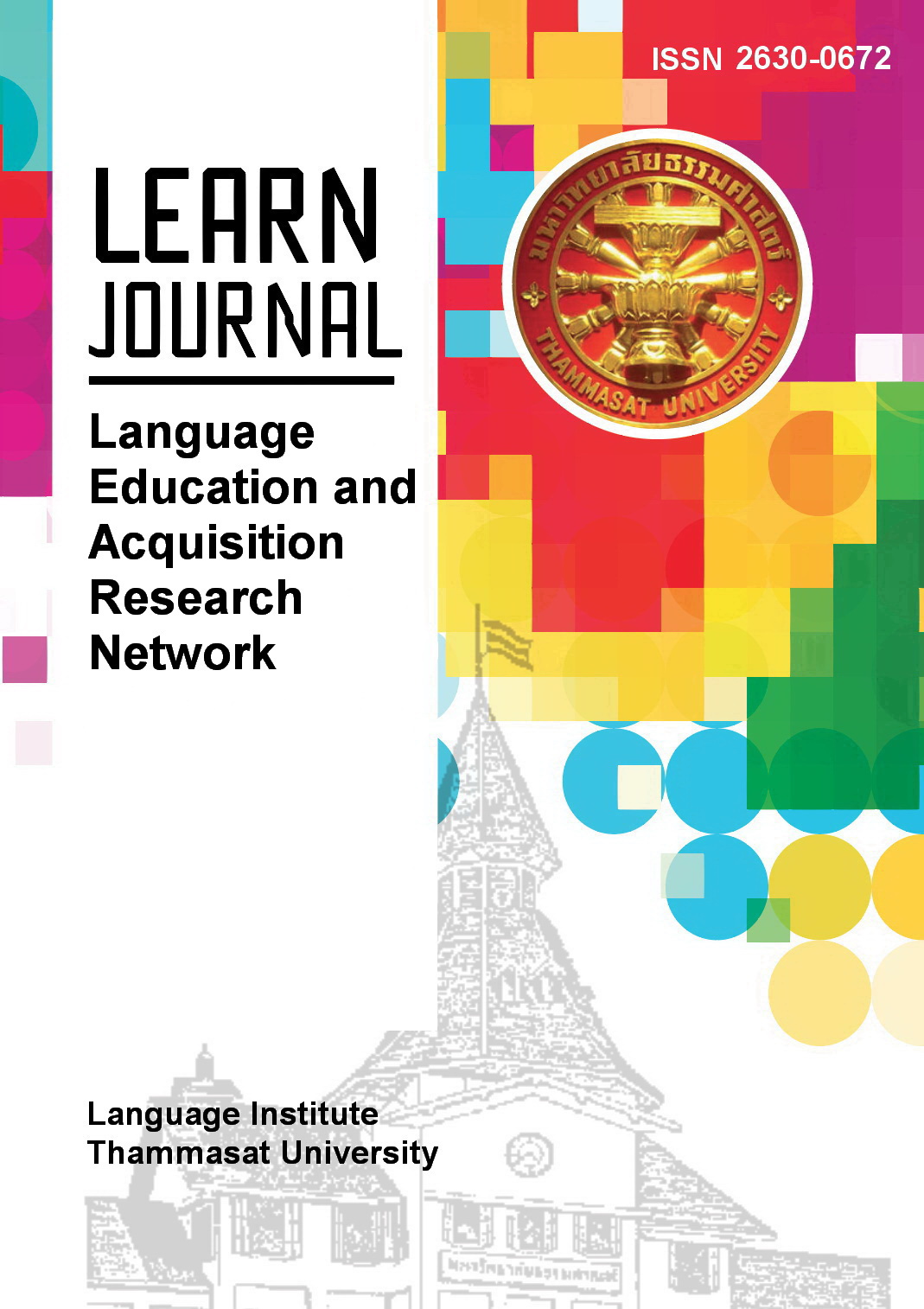Feeling In-Between Experienced by Tertiary-Level English Preparatory Students: An Investigation of Two Turkish EMI Universities
Main Article Content
Abstract
English preparatory programs at English medium instruction (EMI) universities aim to help students gain the necessary competence in English so that they can fulfil their academic and communicative goals at the international level. Preparatory students may experience different psychological situations including feeling in-between. Being neither a high school nor a bachelor student, they may experience difficulties likely to stem from the uncertainty regarding their status and environment and this could have adverse effects on the quality of their language learning including distraction and demotivation. This study is the first of its kind investigating English preparatory students’ feeling in-between by exploring their descriptions, reasons, and suggested solutions. The data were collected from 238 students at two Turkish EMI universities through a questionnaire and interviews and thematically analysed. Findings show feeling in-between was defined as “not feeling like a real university student”. The participants likened their environment to high school and complained about lack of activities and contents not related to their majors. The suggestions included content-based instruction and social, psychological, and academic support. The study implies preparatory students be fully included in educational life and have a say in relevant policies. The research also has implications for tertiary-level EFL instruction worldwide.
Article Details
References
Armağan, S., Bozoğlu, O., & Güven, E. (2016). EFL students’ expectations in higher education level English preparatory schools in Turkey. International Journal of Sciences: Basic and Applied Research, 30(4), 182-192.
Arnett, J. J. (2000). Emerging adulthood: A theory of development from the late teens through the twenties. American Psychologist, 55(5), 469-480.
https://doi.org/10.1037/0003-066X.55.5.469
Aydemir, O. (2011). A study on the changes in the foreign language anxiety levels experienced by the students of the preparatory school at Gazi University during an academic year [Unpublished masters’ thesis, Gazi University].
Baumeister, R., & Leary, M. (1995). The need to belong: Desire for interpersonal attachments as a fundamental human motivation. Psychological Bulletin, 117(3), 497–529. https://doi.org/10.1037/0033-2909.117.3.497
Capps, D., & Carlin, N. (2010). Living in limbo: Life in the midst of uncertainty. Cascade Books.
Creswell, J. (2013). Qualitative inquiry and research design: Choosing among five approaches (3rd ed.). Sage.
Dewhurst, Y., Ronksley-Pavia, M., & Pendergast, D. (2020). Preservice teachers’ sense of belonging during practicum placements. Australian Journal of Teacher Education, 45(11).
http://dx.doi.org/10.14221/ajte.202v45n11.2
Dinçer, A., Takkaç, M., & Akalın, S. (2010). An evaluation on English language education process in Turkey from the viewpoints of university preparatory school students. Proceedings of the 2nd international symposium on sustainable development (pp. 235-242). International Burch University.
Dwyer, P., & Wyn, J. (2001). Youth, education and risk: Facing the future. Routledge.
Freire, P. (1996). Pedagogy of hope: Reliving pedagogy of the oppressed. Continuum.
Gerharz, E. (2014). Indigenous activism in Bangladesh: Translocal spaces and shifting constellations of belonging. Asian Ethnicity, 15(4), 552–570. https://doi.org/10.1080/14631369.2014.937112
Grimell, J. (2019). Revisiting living in limbo to illustrate a pastoral psychological understanding of transition from military to civilian life. Pastoral Psychology, 68, 393-405. https://doi.org/10.1007/s11089-019-00881-6
Huo, J. (2022). The role of learners’ psychological well-being and academic engagement on their grit. Frontiers in Psychology, 13. https://doi.org/10.3389/fpsyg.2022.848325
Kemaloglu-Er, E., & Deniz, E. B. (2020). Defining ELF as a sociolinguistic concept and a pedagogical perspective. In Y. Bektas Cetinkaya (Ed.), Intercultural competence in ELT – Raising awareness in classrooms (pp. 21-37). Peter Lang. https://doi.org/10.3726/b17543
Lähdesmäki, T., Saresma, T., Hiltunen, K., Jäntti, S., Sääskilahti, N., Vallius, A., & Ahvenjärvi, K. (2016). Fluidity and flexibility of ‘‘belonging’’: Uses of the concept in contemporary research. Acta Sociologica, 59(3), 233-247. https://doi.org/10.1177/0001699316633099
Marcu, S. (2014). Geography of belonging: Nostalgic attachment, transnational home and global mobility among Romanian immigrants in Spain. Journal of Cultural Geography, 31(3), 326–345. https://doi.org/10.1080/08873631.2014.945719
Mercer, S. (2013). Working with language learner histories from three perspectives: Teachers, learners and researchers, Studies in Second Language Learning and Teaching, 3(2), 161-185.
Özdoruk, P. (2016). Evaluation of the English language preparatory school curriculum at Yıldırım Beyazıt University [Unpublished master’s thesis, Middle East Technical University].
Özkanal, Ü. (2009). The evaluation of English preparatory program of Eskişehir Osmangazi University Foreign Languages Department and a model proposal. [Unpublished PhD dissertation, Eskişehir Anadolu University].
Preston, C., Cheater, F., Baker, R., & Hearnshaw, H. (1999). Left in limbo: patients’ views on care across the primary/secondary interface. Quality in Health Care, 8,16–21. https://doi.org/10.1136/qshc.8.1.16
Soruç, A. (2012). The role of needs analysis in language program renewal process. Mevlana International Journal of Education (MIJE), 2(1), 36-47.
Tekin, M. (2015). Evaluation of a preparatory school program at a public university in Turkey. The Journal of International Social Research, 8(36), 718-733.
Yin, R. K. (2018). Case study research and applications: Design and methods (6th ed.). Sage.


